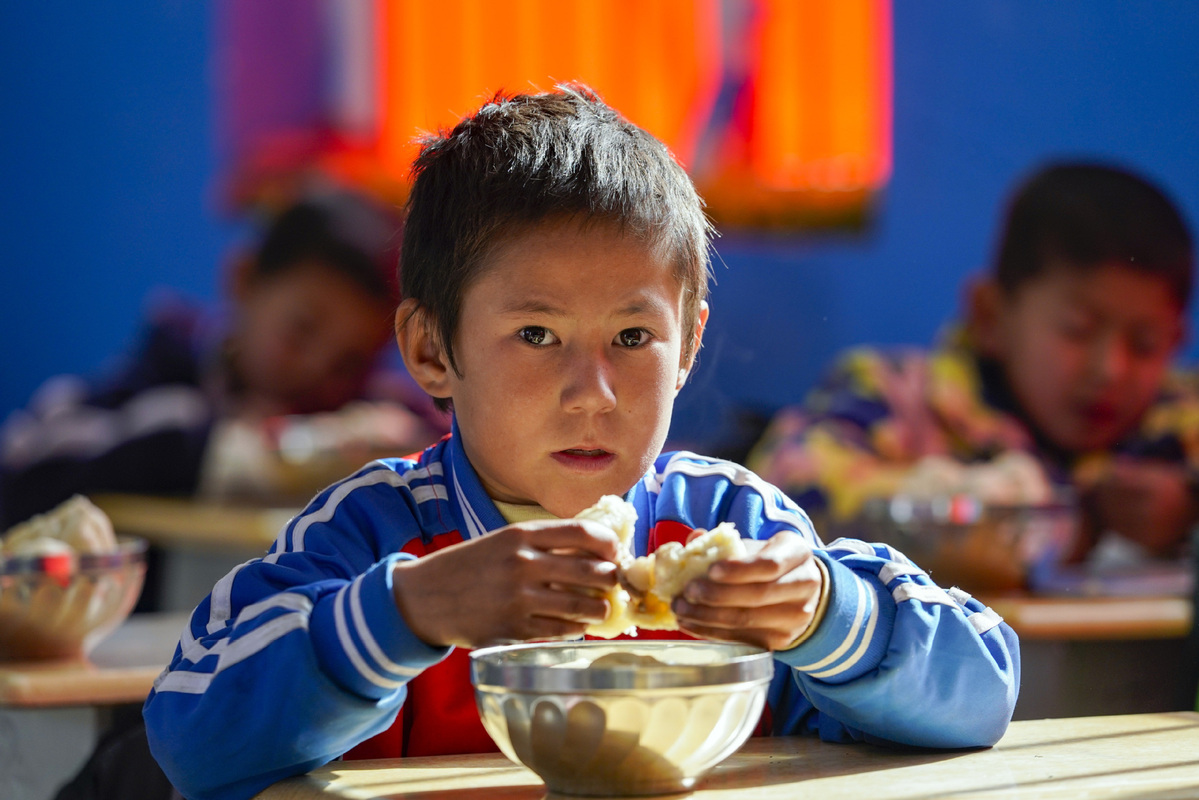Xinjiang denies 'forced boarding' of students
By Mao Weihua and Cui Jia | China Daily | Updated: 2020-01-21 09:04

The Xinjiang Uygur autonomous region has never forced students from ethnic groups to go to boarding schools as claimed by some Western media outlets, and the promotion of standard spoken and written Chinese is not meant "to eradicate ethnic minority culture", "to replace Uygur with Chinese" or "to teach students to hate their parents and culture", Xinjiang officials said.
Xinjiang has stepped up the development of boarding schools, an important part of its efforts to push forward balanced development of compulsory education. The move has effectively solved the schooling problem for children in remote farming and herding areas, Elijan Anayit, a spokesman for the regional government, said during a news confernence held in the regional capital of Urumqi on Monday.
By the end of 2018, boarding students accounted for 12.9 percent of primary school pupils and 44.7 percent of junior middle school students in Xinjiang, with the boarding rate ranking in the middle among western provinces and autonomous regions and roughly the same as the national average, he added.
While helping students master standard spoken and written Chinese in accordance with the law so they can better integrate into modern society, the students' right to learn and use their mother tongues and written systems is fully protected, said Aniwar Abulimit, head of the Educational Bureau of Kashgar prefecture in southern Xinjiang.
"We provide subjects on ethnic languages in primary and middle schools, and teach Uygur, Kazak, Kirgiz, Mongol, Xibe and so on, thus protecting the rights of students from ethnic groups to learn their own languages and effectively promoting the inheritance and development of ethnic minority languages and cultures," Aniwar said.
The curriculum design and examinations of primary and middle schools have also included subjects of ethnic languages. The schools are also encouraged to organize traditional cultural activities of ethnic groups. These efforts have effectively promoted the inheritance and development of ethnic languages and cultures, Elijan added.
"Whether to apply for boarding or not is entirely a voluntary choice of the students and their parents without any so-called forced boarding," said Kadeerdin Kahar, headmaster of a primary boarding school in a village in Hotan county, southern Xinjiang's Hotan prefecture.
Jiapar Abdula, a farmer from Bageqi township, Hotan county, said she has decided to send her children to a primary boarding school because she is busy with farm work and her house is far away from any schools.
"My children are very happy at the school, and their grades are improving," she said. "What's more, they can eat and study at the school for free. That is a great favor for my family."
























